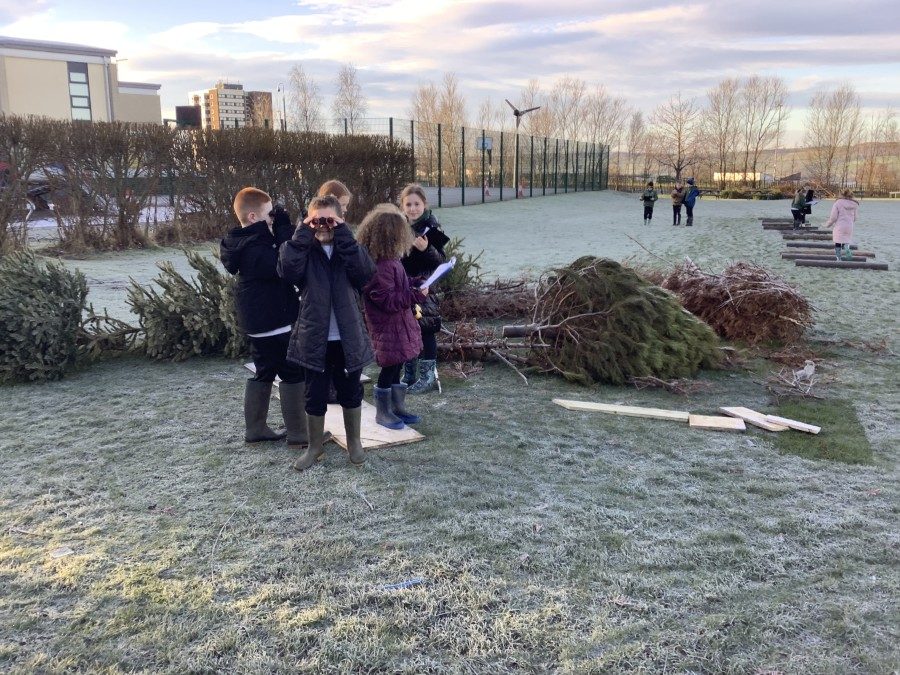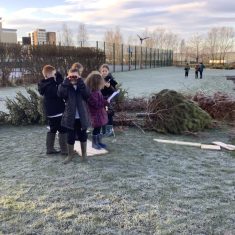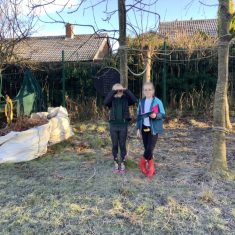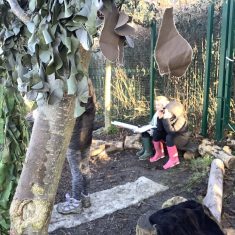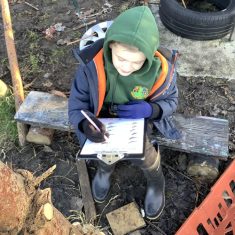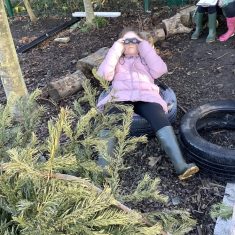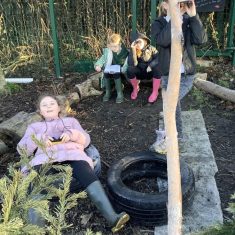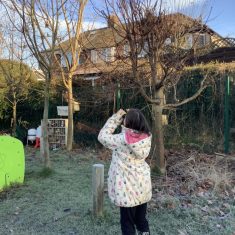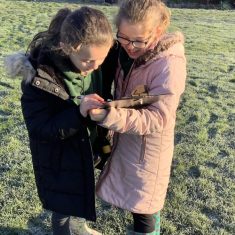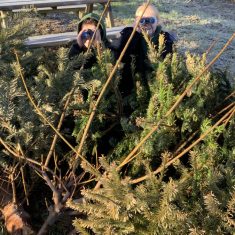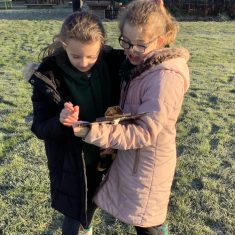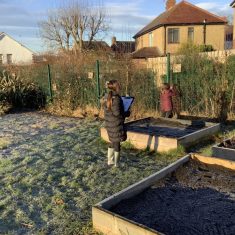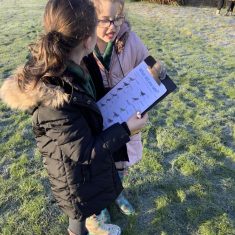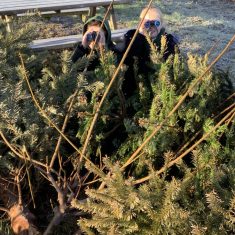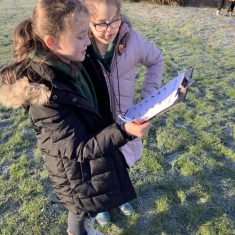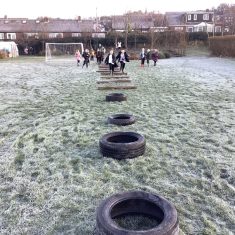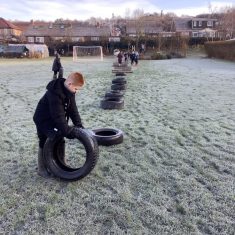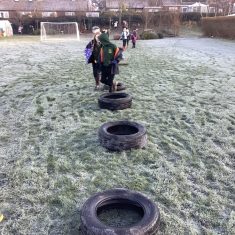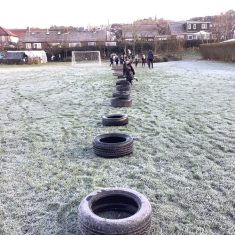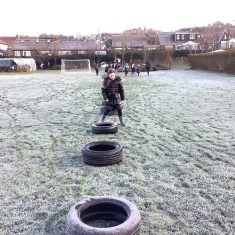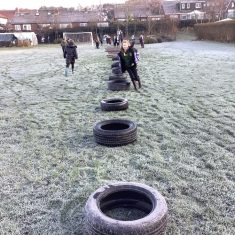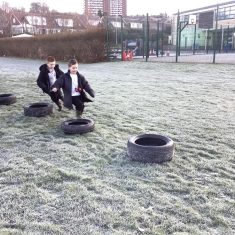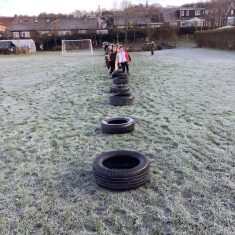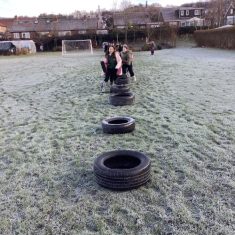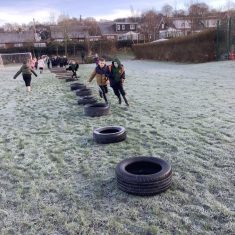Year 4 started their RSPB Big School Birdwatch this week. Cold, calm and crisp weather made a change from the last few years when we’ve experienced very high winds, would that have an effect on the types and amounts of birds? We would have to see. In class, using their “hand” binoculars and telescopes, they were shown how much information our eyes can take in. How reducing that information by limiting peripheral vision focuses the eyes on a subject. They were taught how to use their eyes to locate the bird first and then to bring up the binoculars so more detail could be seen and hopefully make identification easier. What was also important was wrapping up and staying comfortable. With that in mind some of the children arranged “foresty” seating to stop their warmth leaching into the ground and another team set up a simple obstacle run so children could warm up at the end of the session. Good problem solving skills in action.
Monitoring the bird population enables the RSPB to see any environmental impacts on our feathered friends. Are certain species at more risk than others and where targeted conservation may be required. Birds are vital to our natural world and changes to their numbers can dramatically effect the food chains they belong to, so the more information the experts have the better. Remember you can join in at home with the RSPB Big School Birdwatch.
Principle 2: Forest School takes place in a woodland or natural wooded environment to support the development of a relationship between the learner and the natural world.
Article 24 – We all have the right to be healthy and happy.
- Team work makes the job easier. This group had all directions covered.
- The children mark the amount of any particular bird they see.
- Comfort is key.
- Got to stay off that frozen ground.
- Particularly for hedgerow birds having a hide helps.
- Meanwhile time to get warm.
